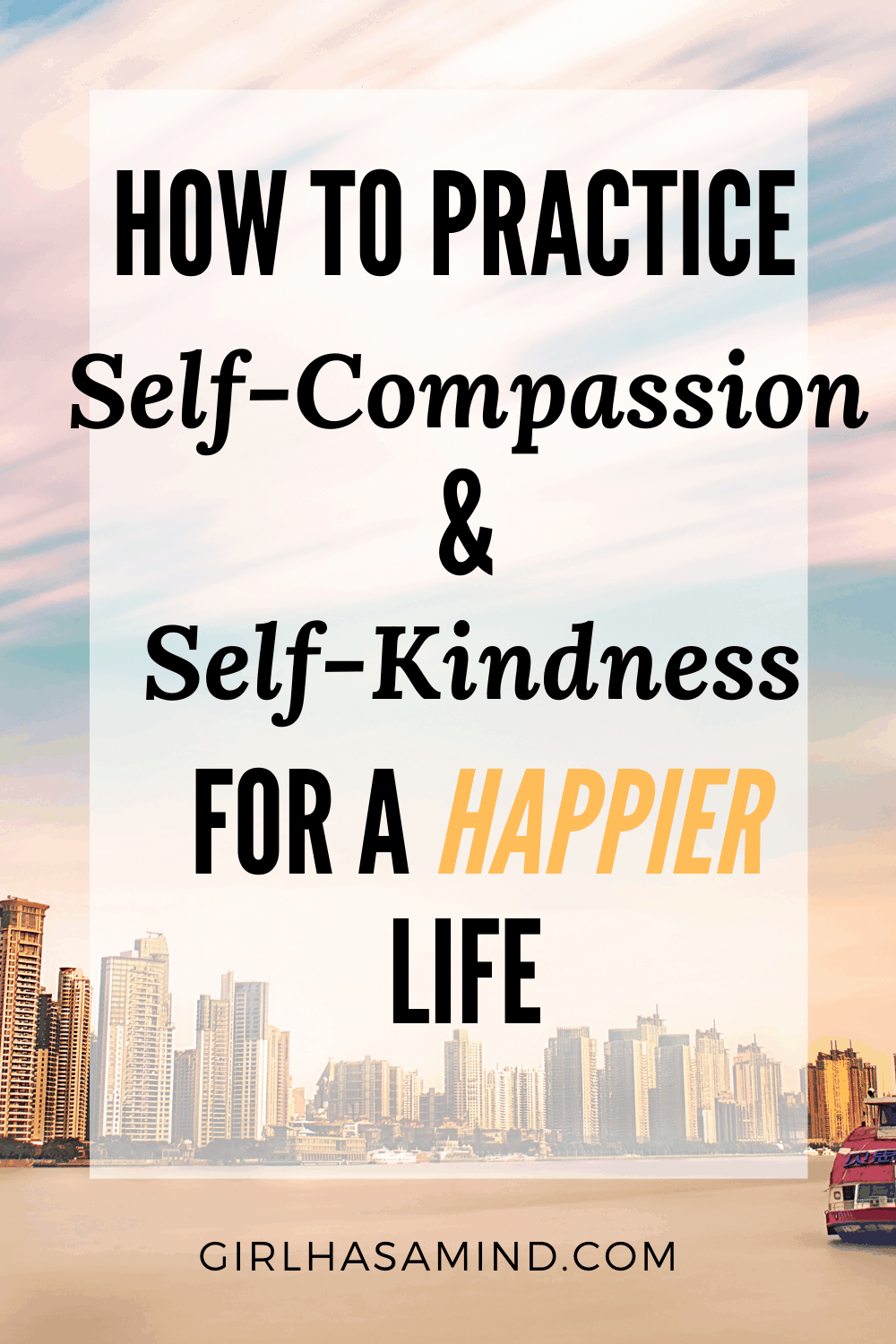The wellness industry is awash with the concept of self-compassion, mindfulness, well-being and all things mental health.
Sometimes it goes overboard I’ll admit, but for the most part the wellness industry has made us all more attuned to the plight of others, and how to be kinder to ourselves. Basically, how to be more aware of our emotions, the emotions of others, and the impact we have on each other.
I don’t know about you, but when I was younger I had a lot of negative self-talk. I could be really mean and critical to myself. There was this nasty little voice in my head that would simply berate me for the smallest thing, the voice would tell me that I was stupid and no-one liked me, and a lot of other ugly things.
Over the years I have really managed to master my self-talk and my internal dialogue has become really positive. And in doing so, my mindset has really shifted from negativity and scarcity, to positivity, success and abundance.
A big part of self-talk is the kindness that you show to yourself, the way you treat yourself and the words you use to talk to yourself, and describe yourself to others.
So self-compassion simply means to be kind to yourself, and treat yourself the same way you would treat a loved one.
I always say, don’t say things to yourself you wouldn’t say to a 5 year old.
Let’s dive deeper into the definition of compassion, self-compassion, how it compares to self-pity, and how you can practice self-compassion on a daily basis.

What Is Self-compassion?
Oxford Languages defines compassion as “sympathetic pity and concern for the sufferings or misfortunes of others“.
Self-compassion is therefore to extend that compassion and sympathy to your own suffering.
Don’t confuse self-compassion with self-pity.
Self-pity is defined by Wikipedia as “an emotion directed towards others with the goal of attracting attention, empathy, or help and one in which the subject feels sorry for themselves“.
Or put another way “excessive, self-absorbed unhappiness over one’s own troubles“.
In other words, self-pity and self-compassion are worlds apart.
Showing yourself compassion has nothing to do with self-pity, attention seeking, or being egotistical or selfish.
Related Posts
What Are The Benefits Of Self-compassion?
Self-compassionate people are happier in life, and they are also more resilient.
This means they overcome obstacles in life faster, they believe in themselves more, set higher and achieve more goals and success, feel more happiness and satisfaction in life, and will be more mentally and physically healthier.
People who are kind to themselves have a higher sense of self-worth, they learn from their mistakes, they don’t give up, and they are not afraid to ask for and accept help. They accept that everyone makes mistakes, and that we are all imperfect in some way.

What Are The 3 Elements Of Self-compassion According To Dr. Kristin Neff?
Dr Kristin Neff wrote a book on self-compassion and self-kindness called Self-Compassion: The Proven Power of Being Kind to Yourself. She also has a great website full of tools to help you become more compassionate towards yourself.
She defines self-compassion according to the following 3 elements, self-kindness, mindfulness, and common humanity.
1. Self-kindness Vs Self-judgement
Self-criticism and constant self-judgement is destructive and it leads to a very ugly, negative and dark mindset.
Instead of judging yourself for your perceived mistakes, flaws and failures, self-kindness is about showing yourself the same warmth, compassion, dignity, respect, kindness and forgiveness you would show other people.
Don’t ignore your own pain.
2. Common Humanity Vs Isolation
Perceiving yourself as flawed and imperfect can lead to a sense of isolation because you feel that only YOU are suffering or flawed in this unique way.
But being human means that we are all flawed and imperfect. Being human also means we crave connections with others, a community where we can share experiences, from happiness and pleasure, to pain and suffering.
Showing yourself self-compassion means recognizing that personal inadequacy or suffering is universal, you are not alone or unique in this way, it’s something we all experience.
3. Mindfulness Vs Over-identification
When things go wrong, it’s easy to overly identify with a problem.
For example, your car breaks down because YOU are unlucky.
Or your flight is delayed because bad things always happen to YOU – never mind the dozens of other people that are also impacted.
When you over-identify you make something all about you, and you forget that other people have problems too. On the other hand, when you suppress or avoid your own emotions or reactions, you are telling yourself you don’t matter, your feelings do not matter, and that essentially “you are not worth it” in some way.
Being mindful means observing your own pain and emotions, or fear and anxiety, letting it in (or out) without letting it consume you. You calmly acknowledge that you are experiencing negative feelings without suppressing them or exaggerating them.
Let yourself feel it, listen to it, give it (you) your compassion like you would a child or animal.
It will allow you to keep your feelings balanced, without becoming overly emotional or allowing a negative experience or emotion to swallow you, and it helps you maintain a larger perspective that all humans suffer in some way.
Practicing Self-compassion
You can find some great self-compassion exercises on self-compassion.org.

6 Ways To Show Yourself Some Kindness
Learning how to show yourself kindness and compassion is a daily challenge.
If you are prone to intense self-criticism and negative self-talk, then changing that behavior will take time, however as with all things in life, it will get easier the more you do it.
Here are 6 tips to get your started.
- Forgive yourself – People who are critical of themselves often refuse to forgive themselves for even the smallest mistake of flaw. Forgive yourself as you would a friend.
- Acknowledge your own emotions – Don’t suppress or run away from your emotions. Show yourself that you are worth it by “listening to your own problems”. Give yourself the time and energy you deserve to fully understand your own feelings. Do it calmly and compassionately.
- Make time for yourself – We all need a few moments in the day where we come first in our own lives, not our spouses or partners, children or family, or work. By prioritizing time just for yourself you are putting your own needs first, even for just a small moment, and you are showing yourself that you matter and that you are important.
- Congratulate yourself – Self-compassionate people celebrate their achievements and accomplishments, they are proud of what they have done.
- Own your mistakes – Everyone makes mistakes, but how we deal with them is what sets self-compassionate people apart from the rest. Don’t deny your mistakes. And don’t make it a personality issue either by telling yourself there is something wrong with you. Simply accept that we all make mistakes and move on.
- Be a good friend to yourself – Self-compassion means being a good friend – even to yourself. A good friend is always there for you, treats you with kindness, warmth, compassion and respect, listens to your pain and suffering, makes time for you, does you favours, forgives you, builds you up and reminds you that you are worth it.

Things Self-compassionate People Don’t Do
- Negative self-talk
- Self-criticism
- Berating yourself for making a mistake
- Suppressing your emotions and unhappiness – having a “stiff upper lip”
- Not dealing with things
- Not looking after your physical health
- Not looking after your mental health
- Pushing yourself constantly past your limits in order to please others
- Giving up because it’s too hard
- Pleasing others
- Giving in to fear
- Giving up at the first sign of failure
- Not learning from your mistakes
- Trying to be perfect
- Ignoring your inner voice
- Not asking for help
- Not talking about your feelings
- Ignoring emotional pain and discomfort
- Not trusting yourself
- Not making time for yourself
Conclusion
Showing yourself some compassion, even a little bit, will help you build up your self-worth, your mindset will become more positive, and you will experience more joy and happiness in life.
As you can see, it doesn’t take a lot, just a little bit every day.
So try to always have a kind word for yourself, no matter how bad your day is going.
And remember, treat yourself like you would a best friend!




